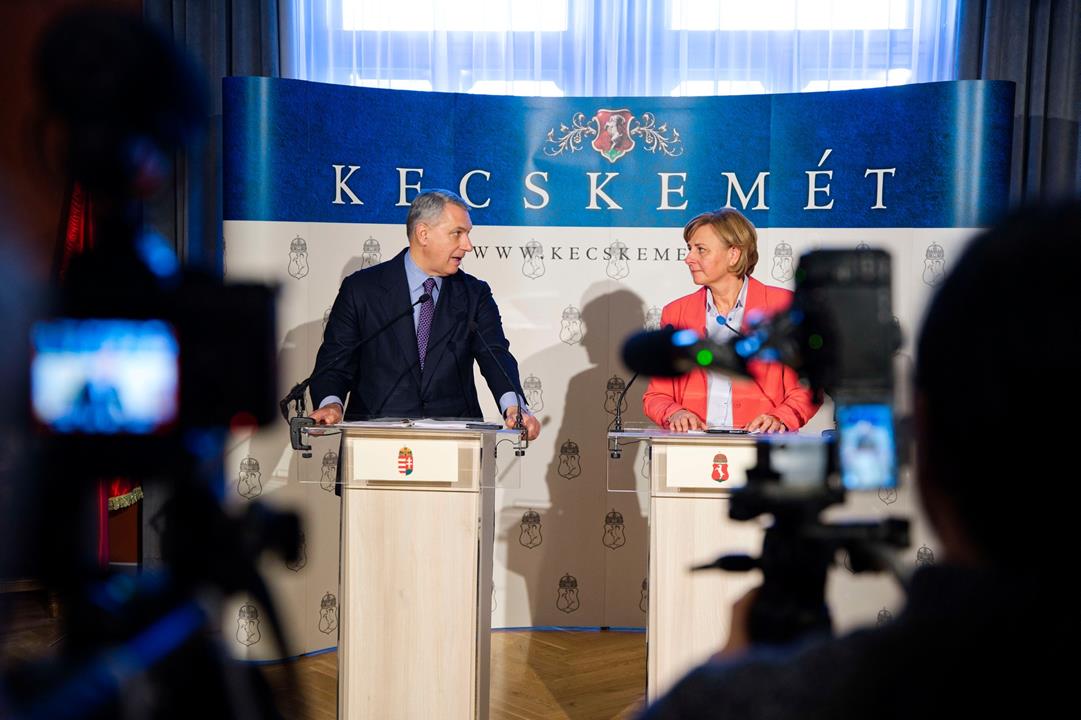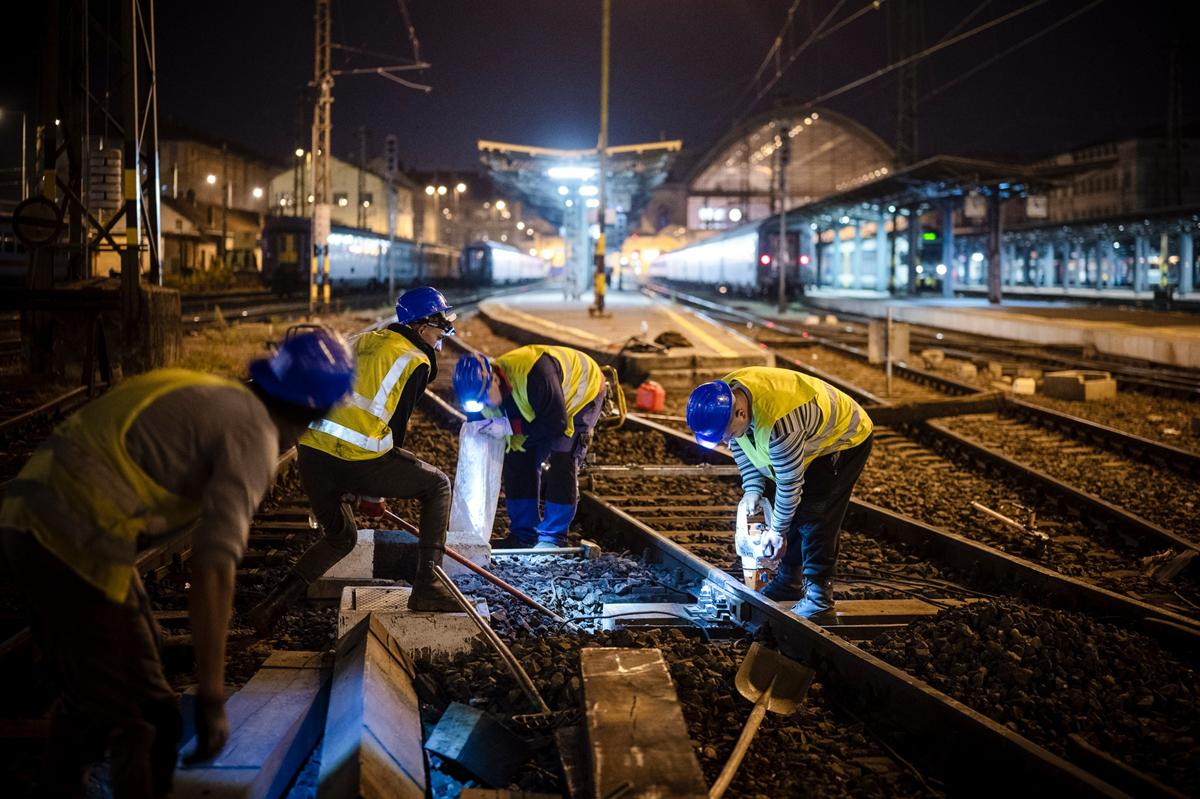Grandiose railway development plan announced concerning the Great Hungarian Plains
Change language:
In the next two years Hungary’s government is planning on spending HUF 600bn on railway developments on the Budapest-Cegléd-Kecskemét-Szeged line, Construction and Transportation Minister János Lázár said on Thursday in Kecskemét (Central Hungary).
Lázár said the Szeged-Kiskunfélegyháza and Kiskunfélegyháza-Cegléd railway lines are being rebuilt because of the new automotive centre under construction in Szeged and in order to serve the automotive manufacturing base in Debrecen (East Hungary).
One reason for the development is labour mobility, so that commuters can get to their workplaces more easily, and the other reason is goods mobility, so that products can be more easily delivered to Western European markets, he added.

The minister said HUF 175bn will be spent on upgrading and converting the Szeged-Kiskunfelegyhaza line into a double-track railway. The Kecskemet-Dabas line will be upgraded for HUF 190bn and the Budapest-Dabas line for HUF 177bn.
The government will use European Union funds and credit to finance the projects, he said.

Kecskemét mayor Klaudia Pataki Szemereyné said around 300,000 commute to Kecskemét daily and the Kecskemét agglomeration area has 400,000-500,000 inhabitants.
In a Facebook post published this morning, Lázár said that his political community, Orbán’s Fidesz began to develop the Hungarian Great Plains after the Fall of Communism. Thanks to that, Kecskemét evolved into an industrial city, he added.
Boosting research, innovation a priority for Hungary presidency, says Minister Hankó
Boosting research and innovation with a view to enhancing the European Union’s competitiveness is one of the priorities of Hungary’s EU presidency, the minister for culture and innovation said at a special session of the European Parliament’s Committee on Industry, Research and Energy (ITRE) in Brussels on Thursday.
Hungary believes that in order to achieve a turnaround in competitiveness, the EU should focus not just on innovation and research but also on education, demographic indicators and identity, Balázs Hankó said in his address.
He warned of the EU’s declining share in the global economy and its dwindling performance in research and innovation. The EU, he added, accounts for just 5 percent of total global venture capital, while the United States accounts for 52 percent and China 40 percent.





